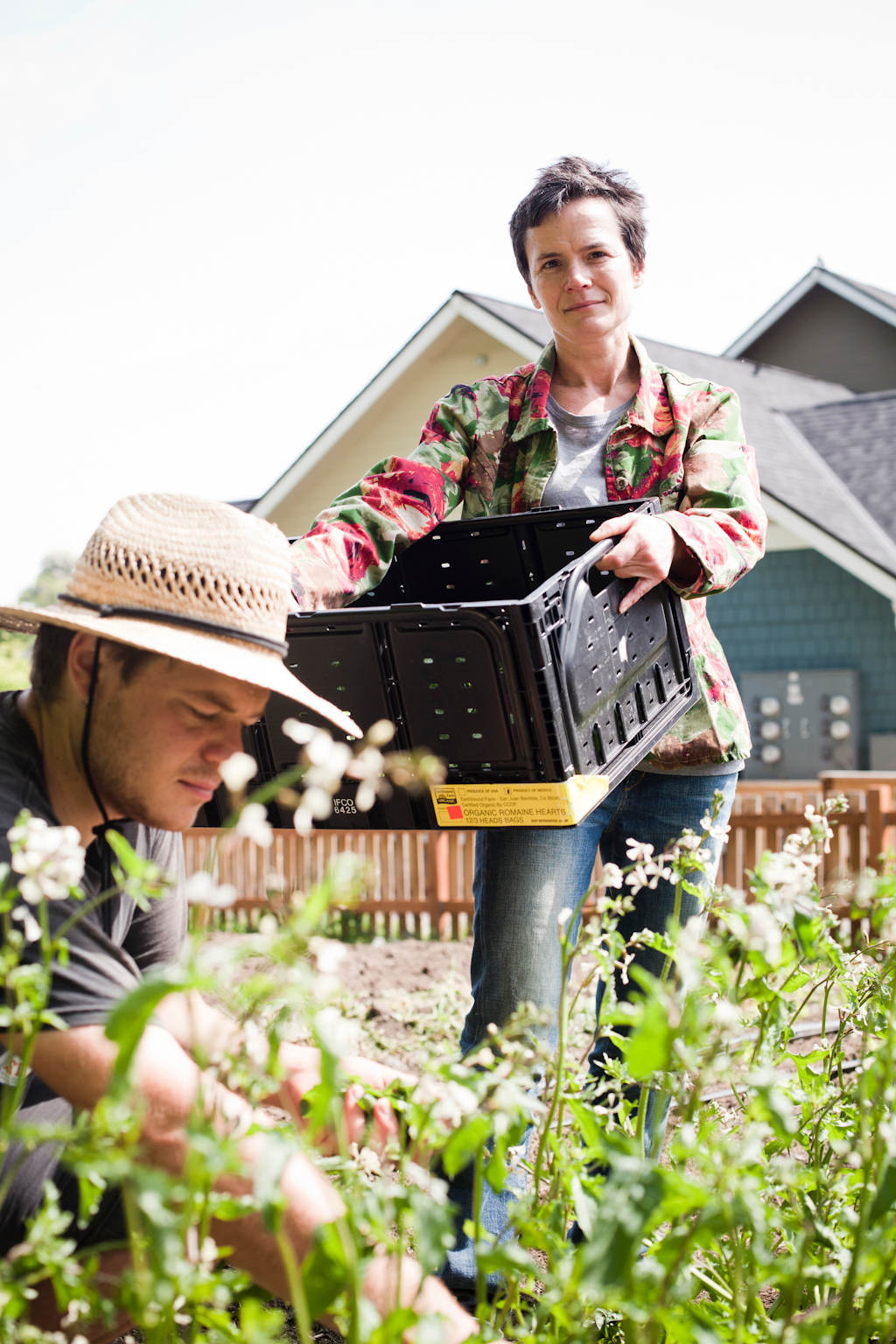Seattle can grow food. All that misty rain that never seems to go away in April and May just means more moisture for young plants. And there’s an ethos of backyard gardening and community gardens in the city that has been growing strong for half a century. But not everyone can grow food in their yards because many people don’t have yards or they can’t manage the physical demands of even small-scale gardening.
Anna Bergman, for instance, has been on disability for three years. She lives in the Rainier Valley neighborhood of Seattle, one of the most diverse zip codes in the country. The muted colors of new mixed-income housing (market and publicly subsidized side-by-side) have replaced much of the former public housing projects along the main artery of Martin Luther King Way.
East African, Middle Eastern, and Asian markets have propagated everywhere in this community that sits just four metro train stops from downtown Seattle. From the Link Light Rail train that passes down MLK Way you can scan a small shopping center and not see a single American storefront.

Anna lives alone in a home in this neighborhood.She can’t maintain a garden by herself due to her disability that causes her energy level to fluctuate drastically from day to day. She never had a garden growing up in Seattle but she understands the value in eating healthy. Before she started volunteering at the Seattle Community Farm, she’d buy a cucumber at the grocery store and call it good for vegetables.
“I made my first salad in years after I started volunteering here and took home my basket of produce,” she says. “The farm offers the opportunity to go from having just enough to actually having a variety of healthy food options.”
The Seattle Community Farm started growing vegetables in 2010 with help from the Seattle Housing Authority, Seattle’s P-Patch Community Garden program, and a USDA Community Food Project grant. Scott Behmer has been the farm manager since 2011. He manages outreach for the volunteer program that recruits residents to offer work hours on the farm in exchange for baskets of fresh produce. He teaches gardening and food health to Boys and Girls Club youth who visit the children’s garden once each week after school.
The farm is only the latest addition to a laundry list of fresh food initiatives supported by Solid Ground. Their Lettuce Link program has been operating throughout Seattle for over a decade. Lettuce Link has found innovative ways to pull more food out of the fecund Seattle environment, and all of it directed toward low-income citizens. They coordinate with over thirty of the city’s prolific P-Patch Community gardens to grow an extra row of vegetables for donation, which, in 2011 yielded over 21,000 pounds of fresh vegetables for area food providers.
Lettuce Link also runs the Community Fruit Tree Harvest that gathers fruit from backyard trees and distributes hundreds of pounds of otherwise left-to-rot fruit to meals programs and food banks. Hopefully, the new Seattle Community Farm will follow the lead of Marra Farm, a four-acre urban farm on one of Seattle’s last two remaining chunks of original agricultural land. It’s neighborhood, South Park, is poor, polluted, and lacking in access to fresh, healthy food sources. Marra Farm produced over 22,000 lbs of vegetables in 2011 thanks to over 1,800 volunteers. The food goes to the volunteers, community households, local seniors, and schools.
Anna knows the reality of food. “When you have access to fresh, healthy food,” she says, “you eat it. You don’t have to eat crap just because you are poor.”









